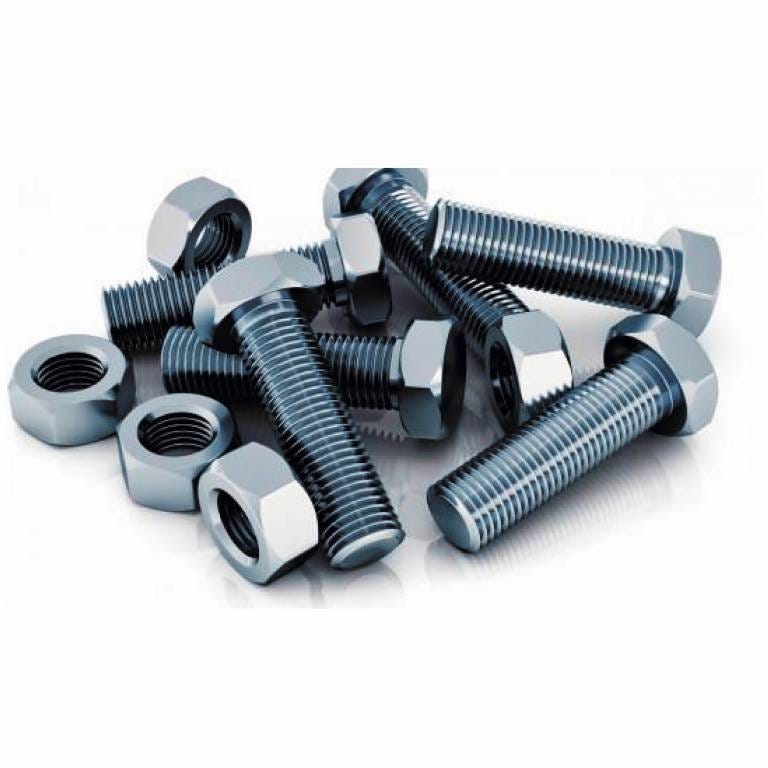Perfecting the Mechanisms: The Reason Hardware Components Count

Within the realm of building, automotive repairs, and do-it-yourself home enhancement, hardware are the silent champions that hold everything together. These tiny yet powerful fasteners play a vital role in ensuring that structures and machinery work correctly and safely. Whether click for more info are engaged in a large construction project or just fixing a wobbly shelf, comprehending the different types of nuts and bolts, along with their applications, is crucial for achieving long-lasting results.
This resource is intended to clarify the mechanics of hardware, equipping you with the knowledge you need to choose the appropriate fasteners for any project. From examining the various types of bolts and nuts on the market to reviewing their functions in various substances and contexts, we will take a comprehensive examination into the details that matter. Join us as we explain everything from the most typical types of bolts to the more obscure, unique fasteners that you may come across along the journey. Armed with this full resource, you'll be prepared to conquer the details of hardware like a master.
Comprehending Fasteners and Fixtures
Nuts and bolts are basic components used in different applications, from construction projects to common repairs. They serve as fasteners that hold various materials in place, ensuring stability and structural integrity. Comprehending these two key elements is important for both skilled workers and DIY enthusiasts alike. By selecting the correct type of nut and bolt, one can effectively secure structures, machinery, and different components.
The basic relationship between nuts and bolts is clear. A bolt is a long rod with a head on one end and a spiral thread, while a nut is a six-sided piece that contains a hole with inner threads. When a bolt passes through materials and is secured with a nut, the two work in unison to create a robust connection. Bolts and Nuts Store belies the complexity, as there are various types, sizes, and grades available, each designed for distinct tasks and environments.
In different industries, such as construction, automotive, and manufacturing, comprehending the specific characteristics of nuts and bolts can greatly impact the choice of fasteners. Factors like the material, thread type, and application conditions all play a role in establishing which fastener will best suit the job. Whether choosing a heavy-duty bolt for structural use or a specialty bolt for a precise application, acquaintance with the options available can lead to more effective outcomes.

Substances and Finishes
When it comes to nuts and screws, the selection of substances is crucial for ensuring physical integrity and durability. Metal is the most frequently used substance due to its strength and toughness. However, inside the category of metal, there are variations such as regular steel, composite steel, and corrosion-resistant steel, each offering varied levels of protection to wear and oxidation. Bronze is another substance often used for its visual appeal and tolerance to rust, making it suitable for applications like piping. For high-performance settings, titanium bolts are increasingly popular due to their low-weight nature and exceptional strength.
Coatings play a crucial role in enhancing the performance of fasteners. Common coatings include galvanized plating and galvanization, which offer protection against rust and corrosion. Zinc-plated bolts are appropriate for internal use, while outdoor bolts are better suited for outdoor applications due to their thicker coating. Additionally, powder coating provides a strong finish that withstands fading and scratching, making it an ideal choice for decorative fasteners. The right coating can significantly prolong the life of nuts and bolts, especially in extreme environments.
Finally, selecting the appropriate substance and finish goes beyond mere aesthetics; it directly impacts the performance and dependability of your project. For instance, using corrosion-resistant steel bolts in coastal areas prevents corrosion from saltwater exposure. Understanding these materials and coatings allows you to make educated choices tailored to the specific demands of your project, whether it's industrial construction or precise automotive repairs.
Purchaser Guides and Contrasts
In the process of selecting nuts and bolts for your project, understanding the differences between metric-based and imperial-based fasteners is crucial. Metric fasteners are gauged in millimeters and are typically used in European products, while imperial fasteners are gauged in inches and are prevalent in North American applications. It is important to ensure compatibility between your tools and the fasteners you select to avoid problems during assembly.
Accurately measuring nuts and bolts precisely can significantly impact the effectiveness of your project. Use precision calipers or a micrometers to measure the diameter, length, and thread pitch of the fasteners. For nuts, it is imperative to match the thread pitch with the corresponding bolt. Additionally, noting the grade and material of the fasteners will ensure you pick components that are suitable for your particular needs, whether for durability or ability to resist corrosion.
When it comes to purchasing quality fasteners, search for reliable manufacturers that provide detailed specifications and certifications. Look for testimonials and examine comparison charts, such as bolt strength comparisons, to determine which bolts provide the best strength for your application. A thorough consumer guide can inform your selections, aiding you to steer clear of inferior products and ensuring that you choose fasteners that will perform reliably over time.
